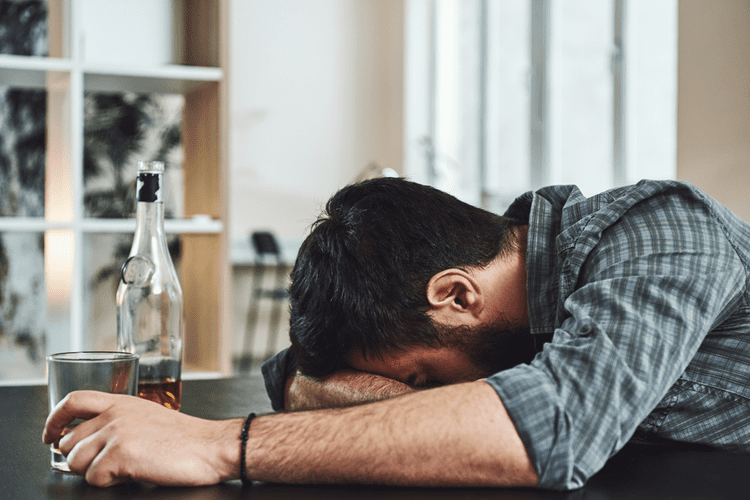The major desire of anyone who loves an addict is to see them clean and sober. There is also a belief that the addiction is the source of all the problems in the addict’s life and their relationships, and it is commonly assumed that merely by attending rehab someone is “cured.” Unfortunately, neither is true. Many loved ones find themselves disappointed by a recovering addict and the progress that they’ve made, or haven’t made. It is definitely best to avoid disappointment, because the recovering addict will sense that disappointment, which will in turn make them feel hopeless and more likely to relapse. Addiction is a disease, and it requires disease-specific treatment.

Stress is one of the most common risk factors for addiction and relapse. People who have been in recovery for years can relapse when life becomes stressful. Between 40 and 60 percent of people recovering from addiction relapse, but that doesn’t mean all progress is lost. Therapy teaches people how to manage relapse, Alcoholic ketoacidosis Wikipedia and support helps decrease the severity of relapse when it occurs. Sober living homes, including halfway houses, improve treatment outcomes for people recovering from addiction. Stays can range from several weeks to several months, and the cost is similar to renting an apartment — some cost more than others.
Drugs, Brains, and Behavior: The Science of Addiction
You can learn about the different types of addiction to aid in your substance abuse recovery. Attend meetings for loved ones of those recovering from an addiction as a way of supporting yourself and connecting with others who can relate. Bear in mind the person recovering https://trading-market.org/29-best-group-therapy-activities-for-supporting/ from an addiction will need real-time to go through these big steps (not just a few days or a month). In 2010, SAMHSA rolled out Recovery Supports as one of its Strategic Initiatives, highlighting the importance of recovery as a valuable component in the continuum of care.
Researchers say this data — and this lived experience — contradicts a widespread misperception that substance-use disorder is a permanent affliction and often fatal. But in a pattern researchers say is common, Mable-Jones’ illness eventually eased. She found treatment that worked and has lived drug-free for more than 20 years. Less visible are the people who survive the illness and rebuild their lives. “This is really good news I think and something to share and be hopeful about,” said Dr. John Kelly, who teaches addiction medicine at Harvard Medical School and heads the Recovery Research Institute at Massachusetts General Hospital.
Wernicke-Korsakoff Syndrome and Alcoholic Dementia
It made me feel safe, warm, nurtured — the opposite of the undeserving person that I feared I truly was. Neuroscience research now shows that the brain’s natural opioids are an essential part of the system that bonds us to one another, which is why for people like me who have had difficulty feeling lovable, these drugs can taste like paradise. As an expert on addiction, I knew that a return to compulsive drug use wasn’t inevitable with medical opioid exposure. But I also knew that it was wise to be cautious about reopening a door that could lead me back to my past. Helping a person recovering from an addiction can come down to helping them connect to treatment—if they’re not already doing so—and encouraging support groups like AA. The people this person meets in these meetings are much better positioned to encourage their sobriety than family members are.
- As part of the Consortium on Addiction Recovery Science, two HEAL-funded research teams are laying the groundwork for current and future science-based community participation in recovery research.
- Support groups provide helpful literature, a safe place to share concerns, and a network of people to turn to as needed.
Health and social service providers, funders, policymakers, and most of all people with substance use disorders and their families need better information about the effectiveness of the recovery options reviewed in this chapter. Thus, a key research goal for the future is to understand and evaluate the effectiveness, and cost effectiveness, of the emerging range of mutual aid groups and RSS, particularly peer recovery support services and practices and recovery coaches. Another focus of research is new, culturally specific adaptations of long-existent recovery supports, such as AA and NA, as they evolve to meet the needs of an increasingly diverse membership.
‘Relapse pays:’ Local forum tackles drug addiction treatment and the Florida Shuffle
Families can develop awareness of a loved one’s emotional, environmental, and social triggers of substance use and manage those. Because of the way addiction changes the brain, one of the best ways to help when loving someone with an addiction is to provide frequent feedback and encouragement, planning small immediate rewards every day for any positive changes. Studies show that families that participate in treatment programs increase the likelihood of a loved one staying in treatment and maintaining gains. Mark, a recovering addict, faced cravings and triggers after completing detoxification and therapy.

50.2 million American adults considered themselves to be in recovery from their substance use and/or mental health problems. 2 in 3 adults who ever had a mental health problem considered themselves to be recovering or in recovery. While relapse is a normal part of recovery, for some drugs, it can be very dangerous—even deadly. If a person uses as much of the drug as they did before quitting, they can easily overdose because their bodies are no longer adapted to their previous level of drug exposure. An overdose happens when the person uses enough of a drug to produce uncomfortable feelings, life-threatening symptoms, or death.
